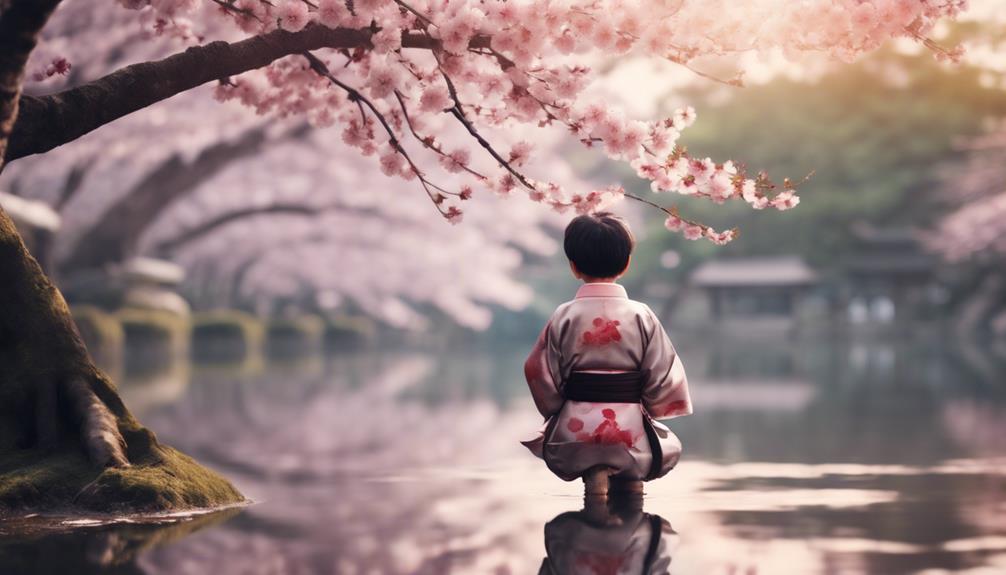Explore captivating Japanese names for boys that embody resilience, kindness, loyalty, wisdom, intelligence, and strength. Discover names like Haruki, Hiroshi, Ren, and Kiyoshi, each representing profound virtues and qualities. Immerse yourself in a world where names reflect cultural nuances, historical figures, nature, and modern influences, adding depth to your quest for the perfect name. Uncover the beauty and meaning behind traditional names like Akira, Kenji, Mizuki, and Ryusei, each holding rich symbolism. Delve deeper into names inspired by nature, Shinto deities, historical figures, and virtues, enriching your search for a name with cultural significance.
Key Takeaways
- Japanese boy names like Haruki and Ren symbolize resilience and loyalty.
- Unique names like Mizuki and Ryusei hold deep meanings tied to nature and virtues.
- Cultural significance in names reflects virtues, nature, and historical figures.
- Traditional names embody virtues like intelligence, peace, and loyalty.
- Names inspired by Shinto deities and historical figures symbolize strength and wisdom.
Popular Japanese Boy Names
Explore the charm and significance of popular Japanese boy names in today's diverse world. Japanese boy names like Haruki and Hiroshi aren't just beautiful sounding; they carry deep meanings tied to positive traits. These names often embody virtues such as resilience and kindness, reflecting the values held dear in Japanese culture.
For example, names like Ren and Kiyoshi are associated with qualities like loyalty and wisdom, emphasizing the importance of integrity and knowledge.
In Japanese tradition, boy names are chosen with aspirations for success and prosperity in mind. This is why popular names like Akira and Kenji, besides being widely embraced, also hold meanings related to intelligence and strength. The significance of these names goes beyond mere identification; they symbolize various positive attributes like honesty, devotion, and stability, shaping the character and destiny of those who bear them.
Unique Japanese Boy Names

Discover the allure of unique Japanese boy names that carry profound symbolism and cultural significance.
From names like Mizuki to Ryusei, each holds a rich meaning tied to nature, virtues, and positive qualities.
Uncover the depth and beauty behind these distinctive names as you explore the world of Japanese naming traditions.
Symbolic Japanese Boy Names
Symbolic Japanese boy names, rich in meaning and cultural significance, often reflect virtues, nature, and historical figures with positive attributes. These names carry symbolic meanings that embody virtues such as resilience, intelligence, and peace.
Traditional Japanese boy names are deeply rooted in aspirations for success, strength, and harmony. Some names draw inspiration from modern sources like Marvel Comics characters or the Yakuza culture, blending contemporary influences with tradition.
For instance, names like Riku, meaning 'way of things,' and Taiga, translating to 'big and elegant,' encapsulate cultural nuances and significance.
Cultural Significance of Names
Japanese boy names carry deep cultural significance, often reflecting virtues, nature, and historical figures with positive attributes. These names go beyond mere identification, embodying values such as resilience, intelligence, peace, and loyalty.
Rooted in tradition, modern Japanese boy names strike a balance between contemporary tastes and a rich cultural heritage. Many names draw inspiration from Shinto deities, underscoring Japan's spiritual beliefs and reverence for the divine.
Parents meticulously select names for their sons that mirror their aspirations and dreams for their offspring's future accomplishments. Whether honoring historical figures or aiming to instill certain characteristics, Japanese boy names serve as a powerful tool for shaping identity and fostering a sense of pride in one's heritage.
Traditional Japanese Boy Names
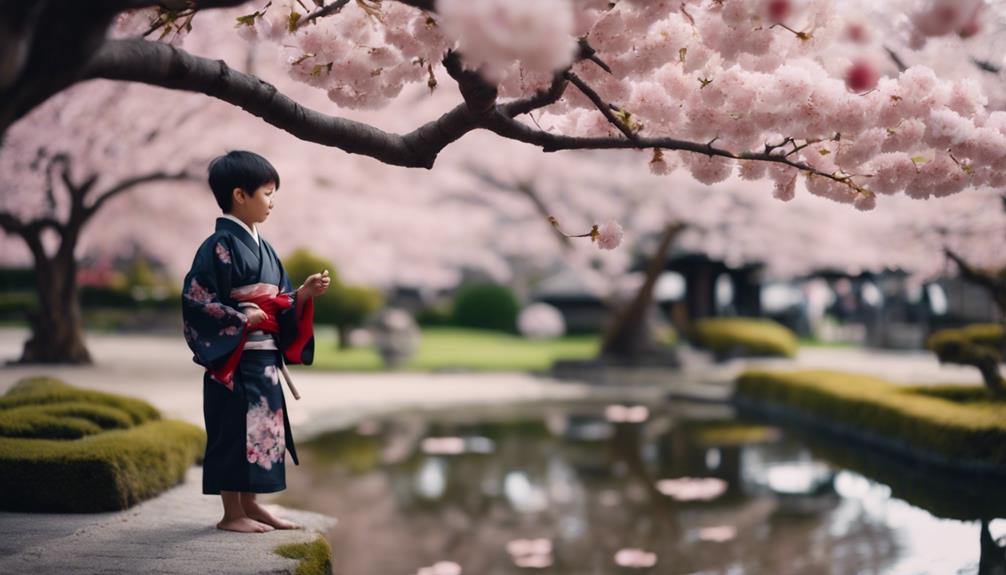
Traditional Japanese boy names hold deep cultural significance, often embodying virtues like resilience, intelligence, and strength. These names can symbolize peace, harmony, loyalty, and commitment, reflecting the values cherished in Japanese society.
Exploring the symbolism behind traditional Japanese boy names can offer insight into the rich heritage and aspirations of the culture.
Cultural Significance in Names
Incorporating values deeply rooted in Japanese culture, traditional boy names in Japan often carry profound cultural significance. These names for boys frequently embody virtues like resilience, intelligence, and strength, reflecting the importance placed on these qualities in Japanese society.
Many names are also closely linked to nature, showcasing a deep appreciation for the natural world and its influence on Japanese culture.
Japanese boy names can symbolize various virtues such as peace, harmony, commitment, and loyalty, mirroring the aspirations parents hold for their children. Names like Haruki, Taiki, and Takato evoke themes of new beginnings, freshness, and tranquility, emphasizing the desire for positivity and harmony in one's life.
Symbolism of Japanese Names
Many traditional boy names in Japan derive deep symbolic meanings from nature, virtues, and historical figures. Japanese names often carry significant symbolism, reflecting values cherished in Japanese culture.
For instance, names associated with Shinto deities like Raijin symbolize strength and power, while names like Haruto, meaning 'sunfly,' embody energy and dynamism. Buddhist influences are also prevalent in traditional Japanese boy names, with names such as Daiki signifying greatness and nobility. These names aim to instill positive traits such as wisdom, resilience, and kindness in the child. Japanese parents meticulously select names that encapsulate their aspirations for their children's future success and well-being.
The tradition of naming boys in Japan emphasizes not only individual identity but also the cultural and spiritual heritage passed down through generations. By choosing names rich in symbolism and meaning, parents honor their roots and instill a sense of pride in their children's heritage.
Modern Japanese Boy Names

When choosing modern Japanese boy names, consider the blend of traditional elements and contemporary trends that create unique and meaningful options. Modern Japanese boy names often embody a fusion of cultural heritage and current influences, offering parents a wide array of choices for their sons. These names can carry profound meanings related to virtues, aspirations, or even nature, reflecting the changing cultural landscape in Japan.
Here are some examples of modern Japanese boy names and their meanings:
| Name | Meaning | Origin |
|---|---|---|
| Haruto | sun, sunlight | Japanese |
| Ren | lotus | Japanese |
| Kaito | ocean | Japanese |
| Hiroshi | generous, abundant | Japanese |
| Sora | sky | Japanese |
Parents today are gravitating towards modern Japanese names that not only sound appealing but also carry positive attributes and values, making each name a thoughtful and symbolic choice for their child.
Japanese Boy Names With Nature Meanings

Explore the world of Japanese boy names with nature meanings, where each name reflects a deep connection to the natural world.
From names like Aoi (blue) representing the serene beauty of nature to Minato (harbor) symbolizing peace and tranquility, these names carry rich symbolism.
Discover how these nature-inspired names embody positivity, strength, and a profound appreciation for the environment.
Nature-Inspired Japanese Meanings
Consider how Japanese boy names with nature meanings encapsulate tranquility, positivity, and a deep connection to the natural world. These names not only sound beautiful but also carry profound meanings that resonate with Japanese culture and values.
Immerse yourself in the world of nature-inspired Japanese boy names and discover the essence of:
- Aoki (Blue Tree): Reflects the serenity and strength found in nature.
- Minato (Harbor): Symbolizes a safe haven and protection.
- Asahi (Sunlight): Evokes positivity, warmth, and new beginnings.
- Fuji (Mountain): Represents resilience, stability, and grandeur.
- Sora (Sky): Portrays freedom, vastness, and endless possibilities.
Exploring these names delves beyond mere labels; it allows you to connect with the natural world on a profound level, appreciating the beauty and significance that nature holds in Japanese society.
Embrace the tranquility and positivity these names bring, embodying the essence of nature in your child's identity.
Symbolism in Boy Names
Japanese boy names with nature meanings embody a deep reverence for the natural world and its symbolism. These names, such as Aoki (blue tree), Aoi (blue), and Minato (harbor), not only represent tranquility and beauty but also establish a profound connection to nature.
Through these nature-inspired meanings, Japanese boy names convey positive attributes like resilience, strength, wisdom, and peace, instilling virtues and positive qualities in children. The symbolism in these names goes beyond mere identification, reflecting a cultural ethos that values harmony with the environment.
Names like Asahi (sunlight), Taiga (big tree), and Riku (land) showcase the diverse ways nature intertwines with Japanese boy names, illustrating the multifaceted relationship between individuals and the natural world.
Japanese Boy Names Inspired by Virtues
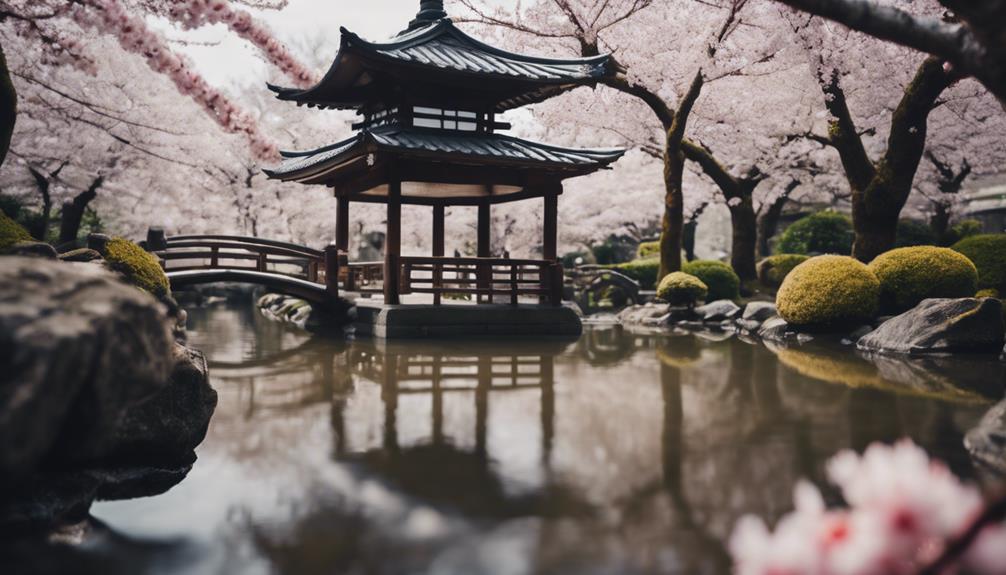
Names inspired by virtues in Japanese culture often embody positive attributes like wisdom, resilience, peace, loyalty, and intelligence. When choosing a name for your son, consider the virtues it represents and the values you wish to instill in him:
- Akira: Reflecting wisdom and intelligence, this name signifies a deep understanding and insight.
- Haruki: Symbolizing resilience, this name conveys the strength to overcome challenges and adversity.
- Benjiro: Embodies peace and tranquility, promoting harmony and serenity in one's life.
- Ren: Representing loyalty, this name highlights the importance of faithfulness and commitment.
- Chikao: Signifying cleverness and quick-wittedness, this name emphasizes strategic thinking and sharp intellect.
Japanese boy names inspired by virtues not only carry cultural significance but also serve as a reminder of the qualities parents hope their children will embody. By choosing a name that reflects positive attributes and virtues, you're setting a foundation for your son's character and future success.
Japanese Boy Names From Shinto Deities
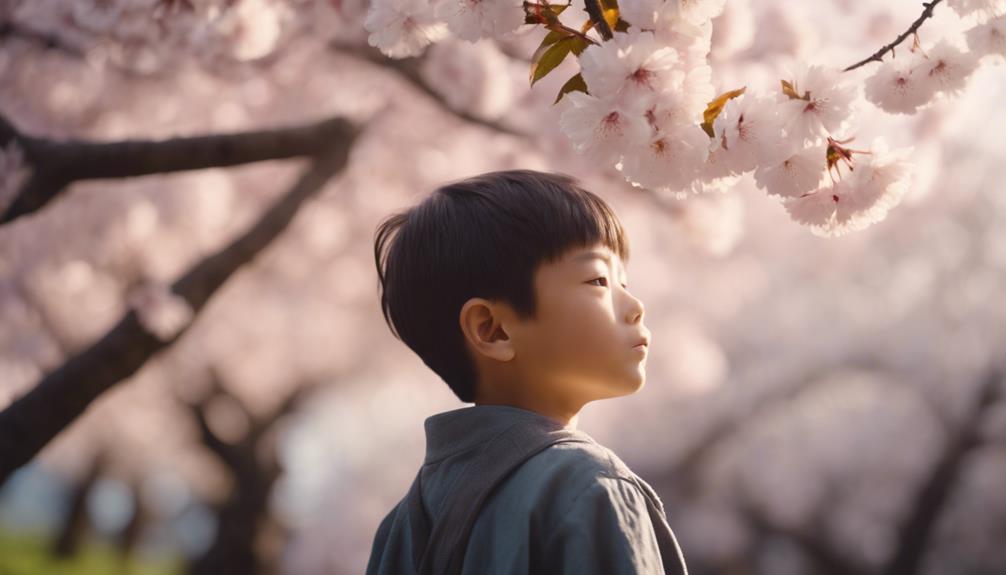
Drawing inspiration from Shinto deities, Japanese boy names often embody qualities of strength, wisdom, and bravery. Names like Hachiman, after the god of war, symbolize courage and valor, making them powerful choices for parents seeking to instill these virtues in their sons.
Amaterasu, the sun goddess, inspires names reflecting light, warmth, and power, bringing a sense of brightness and energy to the bearer.
Susano, the storm god, influences names associated with power, resilience, and protection, offering a sense of fortitude and security to those who carry them.
By selecting a Japanese boy name from Shinto deities, you not only honor a rich cultural heritage but also imbue your child's identity with positive attributes that can guide and inspire them throughout their life.
Choose a name that resonates with the strength, wisdom, courage, and valor of these ancient deities, creating a meaningful and impactful legacy for your son.
Japanese Boy Names From Historical Figures

Inspired by notable figures from Japan's past, boy names derived from historical personalities often embody qualities synonymous with courage, wisdom, and leadership. Choosing a Japanese first name based on a historical figure can be a powerful way to honor the country's rich heritage and instill a sense of tradition in your child.
Consider names like:
- Minamoto no Yoshitsune: Reflecting bravery and strategic brilliance.
- Oda Nobunaga: Symbolizing strong leadership and ambition.
- Tokugawa Ieyasu: Signifying wisdom and foresight in decision-making.
- Miyamoto Musashi: Exemplifying mastery in the arts of war and peace.
- Emperors, samurais, and scholars: Representing honor and respect for Japan's history.
Japanese Boy Names Reflecting Hope

Reflecting positivity and optimism, Japanese boy names embodying hope offer meaningful choices for parents seeking inspiration for their child's name.
Asahi, meaning sunlight, symbolizes positivity and hope, bringing warmth and light into one's life.
Haruto, with its representations of flight, sun, and calmness, embodies hope and tranquility, inspiring a sense of peace and serenity.
Taiga, translating to big and elegant, not only signifies grandeur but also reflects hope and respect in Japanese naming traditions, emphasizing the importance of dignity and aspiration.
Riku, with its ties to the natural world and the way of things, conveys hope and beauty, connecting individuals to the harmony and wonder of nature.
These names, such as Asahi, Haruto, Taiga, and Riku, encapsulate the essence of hope and optimism, providing a source of encouragement and positivity for both the bearer and those around them.
Rare Japanese Boy Names
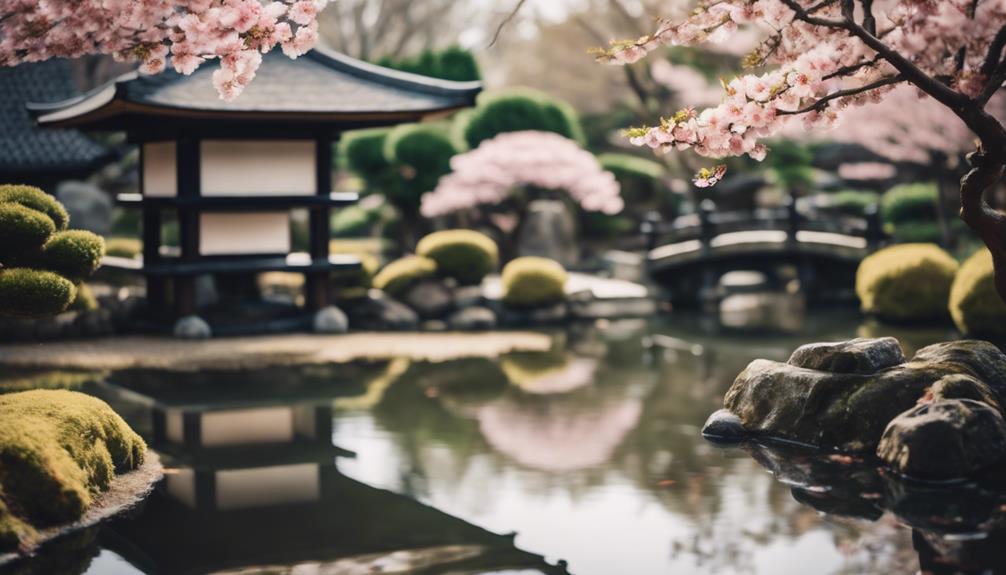
Rare Japanese boy names, characterized by their unique meanings and origins, offer a distinct and culturally rich choice for parents seeking a name that stands out.
These names, though less common, hold deep significance and symbolism in Japanese culture, making them a special choice for your child.
When exploring rare Japanese boy names, you have the opportunity to explore lesser-known options that exude a unique charm and connect you to Japan's rich cultural heritage.
Opting for a rare Japanese boy name is a way to celebrate your child's individuality and uniqueness while honoring traditional Japanese customs.
Some of these names might even have historical or mythological connections, adding an extra layer of depth and intrigue to their meaning.
- Embrace the mystery and allure of rare Japanese boy names.
- Connect your child to Japan's cultural heritage with a unique name choice.
- Celebrate your child's individuality by choosing a rare Japanese name.
- Discover the historical and mythological significance behind these rare names.
- Make a meaningful and distinctive choice for your child's name with a rare Japanese option.
Frequently Asked Questions
What Are Attractive Japanese Boy Names?
Looking for attractive Japanese boy names? Consider Haruki and Hiroshi, embodying positive traits. Riku and Taiga symbolize nature and honor. Ayato and Eito have deep meanings. Mizuki and Ryusei evoke brightness. Eita and Ryo are unique choices.
What Japanese Boy Name Means Pure?
Looking for a Japanese boy name that means pure? Consider 'Jun,' 'Junpei,' 'Tadaaki,' 'Masato,' or 'Kiyoshi.' Each of these names conveys purity, innocence, and cleanliness, reflecting beautiful qualities in a name.
What Japanese Boy Name Means Powerful?
Looking for a powerful Japanese name for your boy? Consider 'Riki,' meaning strong and vigorous. It represents resilience and might. Connect your child with a name embodying strength and power.
What Japanese Name Means God's Gift?
If you're wondering what Japanese name means 'God's gift,' it's 'Takumi.' This beautiful name signifies a precious blessing or artisan. Parents in Japan often choose 'Takumi' to express gratitude for their special child.
Are the Beautiful Japanese Names for Boys Also Unique and Cool?
Yes, meaningful japanese boy names are often unique and cool. Names like Haruki, Kaito, and Ren have profound meanings and strong cultural significance. These names not only sound beautiful but also carry a sense of depth and identity.
Conclusion
So there you have it, a list of beautiful Japanese names for boys and their meanings. Now you can impress your friends with your knowledge of unique and traditional names, or maybe even choose one for your own little samurai in training.
Remember, a name is more than just a label, it's a reflection of hope, nature, and even historical figures.
So go ahead, pick a rare Japanese boy name and show the world just how sophisticated and cultured you are.
